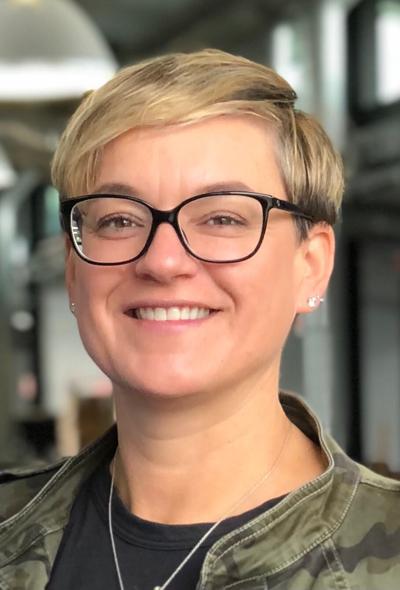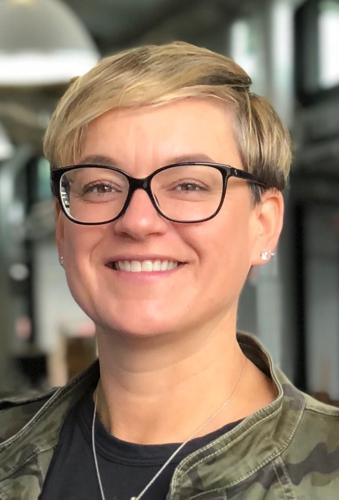Proposition 2: Vermonters must oppose racism, renew and expand our collective identity, and welcome new Vermonters.I am a proud Vermonter. Born and raised in this state, my husband and I made Vermont our home because there is no place that we love more. We cherish the land, the people, even the muddy roads and drastic weather.
My young parents moved here from Jersey City, New Jersey, where their life had been difficult. They had heard about this place called Vermont – a place with beautiful and affordable land, and even more important to them at the time, a safe place to raise their children. With very little money, two little boys, and a Volkswagen full of their belongings, they arrived in Brattleboro in 1971; I was born the following year.
Although they experienced culture shock, prejudice against “Flatlanders” and feelings of isolation that first year, Vermont ended up being very good to them. My father was employed by the state of Vermont for 22 years, working in both Brattleboro and Waterbury. My mother, who arrived without a high school education, was part of the first cohort of students at Community College of Vermont, eventually earning a degree in education from UVM.
I have never really understood the whole “native Vermonter” thing. That idea that, “You aren’t a real Vermonter unless you have been here for four or more generations.” I spent most of my years growing up in Barre City, which is the “Granite Capital of the World.” The long, rich history of the granite industry has brought artists, craftsmen, merchants and families from around the world. My best friend’s family is Lebanese. Growing up, her grandmother, who we lovingly called Tita, would make kibbeh on holidays while bantering with everyone in Lebanese. I also had friends who were third and fourth generation Vermonters, whose grandparents milked cows by hand and made their own butter. Many of my neighbors and friends’ parents spoke French, Italian or Polish at home.
Every summer we attended the “Barre Ethnic Festival” (now the Barre Heritage Festival) – a long-held tradition where families came out and proudly lined the streets with home cooked food and music. In 1981, Andrew Nemethy wrote in the Rutland Daily Herald, “Where else in the world except Barre, Vermont, can a short walk get you pierogi, pizza, flan and ‘yam bomb Bali’.” That year, 25,000 people descended on Barre City to savor the “ethnic” diversity that Barre had to offer. I realize now how fortunate I was to grow up in Barre, a place where new and old Vermonters could find their own space to call home.
I learned at a young age how interesting it is to talk with people who look and sound different from me. I discovered the excitement of trying new foods, learning new words, and dressing in different ways. In my favorite summer job, I picked fruits and vegetables at Legare’s Farm in East Montpelier, working with about a half dozen Jamaican men who became great co-workers and friends. (They were also some of my earliest beer influencers, teaching me about the merits of Guinness Foreign Extra Stout!)
This is the Vermont I love. The Vermont that has deep respect and admiration for our long-held traditions and history, but also the Vermont that has welcomed new people, new families. From my parents who came here in 1971 seeking a better place to raise their children, to my best friend’s grandparents who fled Lebanon to make Vermont their home, we all chose Vermont. And we are all Vermonters.
As a state, and as communities, we need to do a better job supporting inclusive and diverse communities. It is on us to make visitors, new Vermonters, and everyone who comes to our state feel welcome. Inclusion and Diversity are critical for the future of Vermont.
Why are diversity and inclusion critically important? Because they feed our creativity, they drive our economy, and they strengthen our common understanding of what it means to be human. Cultural diversity brings in new ideas and experiences, it makes our children’s lives richer and more exciting, it cultivates curiosity. The more experiences we have with people who are different from us, the more we can expand our ability to identify with humanity – not just our tiny slice of it, but the breadth of human experience. Vermont’s communities benefit from diversity – more richness and variety in the kinds of people living, working, and engaging in our communities means more ideas, contributions, and creativity here in our state. Different ideas and experiences are a good thing.
But there is also an economic imperative for inclusion and diversity. As a Vermont business, we rely on two things – a healthy economy and a healthy reputation. As a tourist and outdoor recreation destination, Vermont has a reputation for being safe and friendly, a place people want to visit. Currently, that reputation is threatened by hate and short-sightedness, which potentially threatens the livelihood of Vermont’s businesses, ours included. It’s not safe or friendly to be in a place where you are more likely to get pulled over by police or less likely to get promoted because of the way you look or speak or worship. We need to call out racist behaviors when we see them, to actively talk about the old ideas of “what is the real Vermont” that holds us back and fills us with fear. If we want our state and our communities to be welcoming to everyone – to new Vermonters and to all of the people who visit us every year – we need a strong commitment to building and fostering a more inclusive state.
Diversity can bring great benefit and vitality to our businesses and to our communities, and to each of us personally. We can work together, and commit to ensuring that people are welcomed and respectfully treated in Vermont. Making a Vermont where you can find everything from hand-churned butter to kibbeh to pierogi, flan and Ayam Bumbu Bali on the same block, along with respect and appreciation for the people who make them, must be our goal. Acknowledging our lack of diversity – and recognizing that it hurts us –is the first step. Building the appreciation for diversity, and the skills of being inclusive, is the second step.
What does it mean to be a welcoming Vermont, and how do we do it? These are the questions I’m focusing on, as an individual and as a business owner. The kind of rich, interesting, creative diversity I experienced growing up in Barre gave me lifelong strengths and connections. I want every Vermonter –whether their families have been here for generations or they are just landing here –to be celebrated for their experiences and appreciated for their contributions, to be acknowledged for choosing to be a Vermonter.
Jen Kimmich is the co-founder and CEO of The Alchemist Brewery. She is a past board member of VCRD, and in 2020 The Alchemist collaborated with the VT Partnership for Fairness and Diversity to create an Action Plan to Dismantle Racism in their community and beyond.



